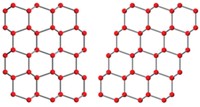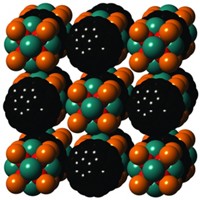Advertisement
Grab your lab coat. Let's get started
Welcome!
Welcome!
Create an account below to get 6 C&EN articles per month, receive newsletters and more - all free.
It seems this is your first time logging in online. Please enter the following information to continue.
As an ACS member you automatically get access to this site. All we need is few more details to create your reading experience.
Not you? Sign in with a different account.
Not you? Sign in with a different account.
ERROR 1
ERROR 1
ERROR 2
ERROR 2
ERROR 2
ERROR 2
ERROR 2
Password and Confirm password must match.
If you have an ACS member number, please enter it here so we can link this account to your membership. (optional)
ERROR 2
ACS values your privacy. By submitting your information, you are gaining access to C&EN and subscribing to our weekly newsletter. We use the information you provide to make your reading experience better, and we will never sell your data to third party members.
Materials
Quasicrystalline Tetrahedra
Computer simulations predict unexpected packing for non-spherical objects
by Mitch Jacoby
December 14, 2009
| A version of this story appeared in
Volume 87, Issue 50
Tetrahedra can be packed into highly dense phases that exhibit quasicrystalline order, according to a theoretical study by scientists at the University of Michigan, Ann Arbor, and their coworkers (Nature 2009, 462, 773). Both philosophers of old and modern scientists have studied close packing of spheres—a topic central to crystallography—but other shapes have drawn far less attention. The new study may enable researchers to understand packing of tetrahedral nanocrystals and other uniquely shaped solids synthesized recently. Michigan’s Sharon C. Glotzer and coworkers used thermodynamics-based computer simulations to examine the way a “fluid” of tetrahedra responds to increasing pressure. Among other observations, the group found that under some conditions, tetrahedra pack into a quasicrystalline phase, which can be recognized by its 12-fold rotational symmetry and a lack of three-dimensional periodicity. This theoretical crystal’s packing fraction—the fractional volume occupied by the tetrahedra—is roughly 0.83, significantly higher than the packing fraction exhibited by close-packed spheres.




Join the conversation
Contact the reporter
Submit a Letter to the Editor for publication
Engage with us on Twitter